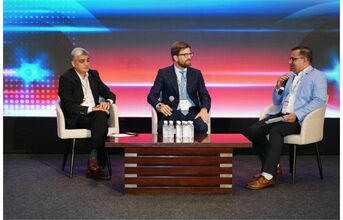
In reality, there is a reliance on imports. The global platform demands access to the best technologies worldwide, and it is crucial for OEMs to extend the benefits of advanced technologies to India. While India can leverage advantages in terms of productivity and manufacturing, certain aspects, like materials and technology tools, are still sourced from abroad. The awareness of this reality has been growing among OEMs, who recognise the need to defend their counterparts while acknowledging the challenges inherent in the process.
Given the reliance on imported raw materials, Christopher shared that Covestro maintains a balance between competitiveness and meeting the expectations of OEMs in India.
He expressed that they do face challenges, but their advantage lies in the global positioning of their production facilities, not just in compounding but also on the website front.
Although the company does not have a website in India, the opportunity to import from diverse countries helps us manage the situation. The formulation of the ‘India green' product, for instance, is based on the agricultural richness of India. Shifting towards bio-based raw materials creates opportunities for India in the long run.
Khare pointed out that the reason for importing is the lack of economies of scale. He envisions a future where all OEMs unite to define a standardised approach, with all interiors categorised in one grid and all exteriors in another.
He foresees a similar shift occurring soon, driven by the increasing adoption of technology like EVs and other features, as well as the rise of autonomous and semi-autonomous systems. As these technologies become more prevalent, the industry is likely to transition towards a standardised approach for materials, driven by the economics of scale.



























